You’ve Built a Sweet Solar Powered System & You are Ready to Roll…Now What?
You’ve been lured into the idea of living on the road by those gorgeous photos you’ve seen on social media – people camping on the edge of canyons or near waterfalls with their rig’s door flung open to a jaw-dropping view. Maybe you’ve even been following us for the past few years as we’ve traveled around the continent?
Your rig is equipped with a sweet solar-powered system and you are ready to live off-grid and enjoy the freedom of camping on public lands. Maybe you even want to try traveling without any reservations at all, as we do. So how do you locate the places where you can camp for free or low cost? What are the secrets, hacks, rules, and regulations you should know about? While the options are truly limitless, they can be tricky to find if you don’t know where to begin.
When we first started living mobile with solar in 2012, the free and inexpensive camping resources available to us amounted to our trusty adventure road atlas, a couple of random websites, some local knowledge, and gut instincts…“What do you think is up that road?” Nearly 9 years later, there are almost as many different apps and websites out there as there are white Dodge Sprinter vans. It’s almost impossible to keep track of them all, let alone decide into which ones to invest your time, money, and gigabytes.
As we’ve wandered around the southwest this winter, we’ve met quite a few newbie road warriors who haven’t yet discovered the myriad of resources available to them. For those who are just setting out, as well as veterans of the blacktop, we’ve put many of our favorite apps and resources into this handy reference guide. It is, by no means, an exhaustive list of everything out there but includes some of our favorites.
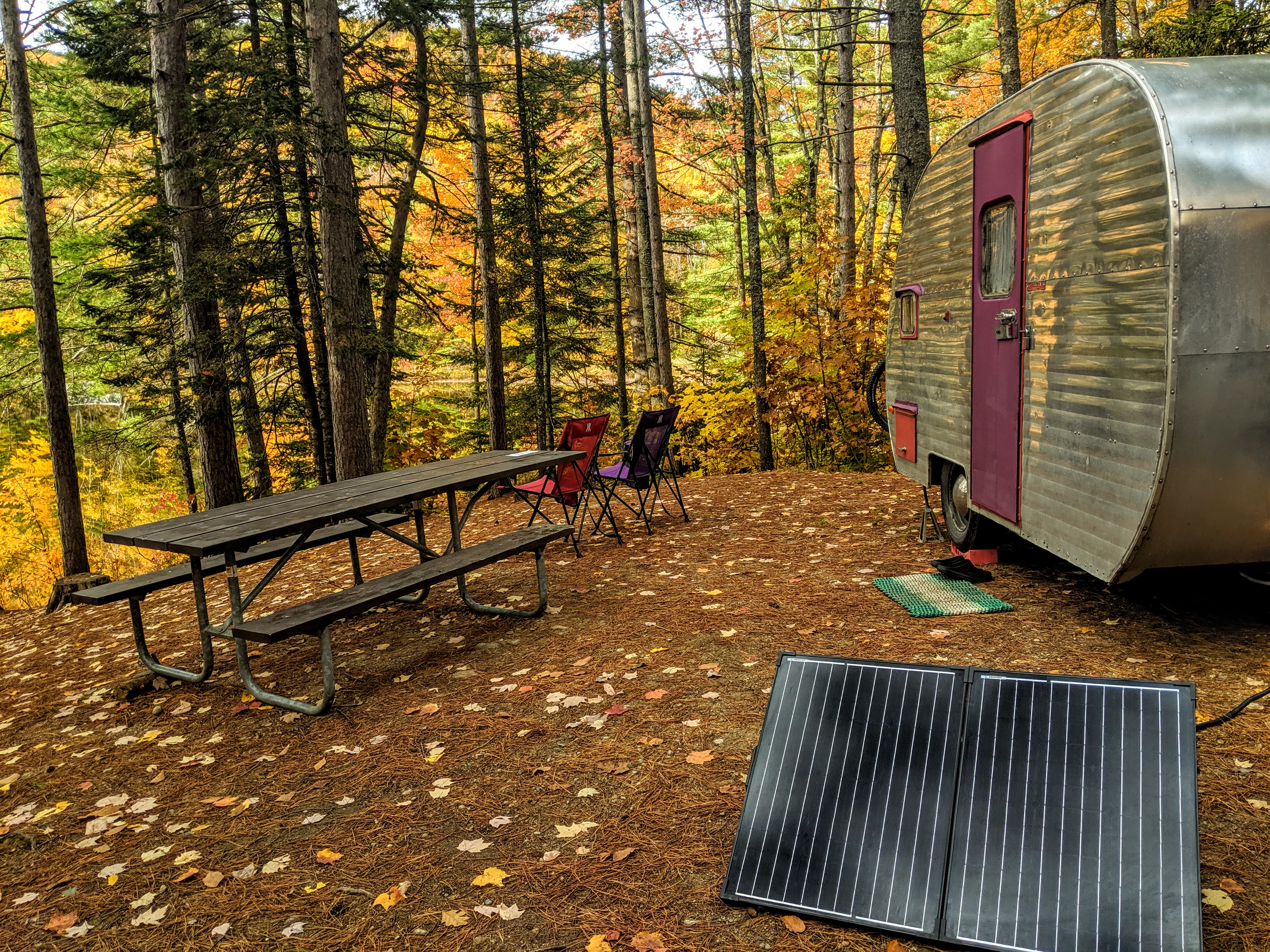
Free Resources for Both Free & Low-Cost Camp Sites
Whether you camp, glamp or rough it in the wilderness, each of these apps or websites offers information about free, dispersed camping in addition to traditional fee-based campgrounds. Others focus more on boondocking (aka dry camping). Most locations have stay limits, so pay close attention to those so you don’t put a strain on resources, or get a ticket… and please, PLEASE leave every place you visit better than you found it, by following Leave No Trace guidelines. If we want these resources to remain open to the public, we MUST respect them!

Bureau of Land Management (BLM) (Available on Website Only)
BLM-managed lands offer numerous opportunities for camping under the stars ranging from developed campgrounds with some amenities (for a small fee) to dispersed camping with nothing but open land for your gentle use (usually free). Most do not offer electrical hookups, so those who are ready to boondock are all set. All BLM land is found out west, and stay limits are typically 14 days but can vary by area so be sure to check the local rules and regulations. If you love good ol’ paper maps to get the bigger picture of an area, check with the state’s BLM office for a free map that is typically filled with all sorts of info about amenities in each area.
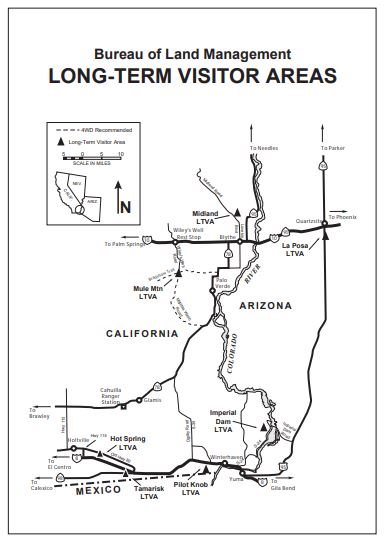
BLM (Winter and Summer LTVA’s) (Available on Website Only)
Long-Term Visitor Areas (LTVA’s) are unique areas in both California and Arizona that are managed by the Bureau of Land Management. There are 11 in total, with one of the largest and well-known near Quartzite, AZ. During the winter, you can camp from September 15th to April 15th (a total of 7 months), or for any length of time between those two dates for $180. Short-term permits are available, and summer rates differ based on the state in which they are located. Amenities vary greatly by site, but the La Posa LTVA near Quartzsite includes 10 ADA accessible vault toilets, 8 water faucets, a dry dump station, a dump station with water, and trash services.
The Dyrt App (Available at the App Store, Google Play Store, & Website)
With the most campground listings of any app, The Dyrt will help you find tent and RV camping locations across the US. Use the helpful filters to find free and inexpensive campgrounds and dispersed areas, too. The app is fully integrated with Google maps, so it’s easy to search via your location and get directions right to the campsite. Read reviews and see photos from real people who’ve camped there. Search regions and create lists to plan your next camping trip, and even book reservable sites through the app. If you are an avid reviewer, you can even win cool outdoor gear through their monthly camping contests. As active reviewers ourselves, we’ve helped grow The Dyrt’s reach by adding new areas that we’ve found. See below for an inexpensive annual fee-based version of this app, which provides some key bonus features that are worth the extra money if you love boondocking on public land, far beyond the reach of a cell signal.
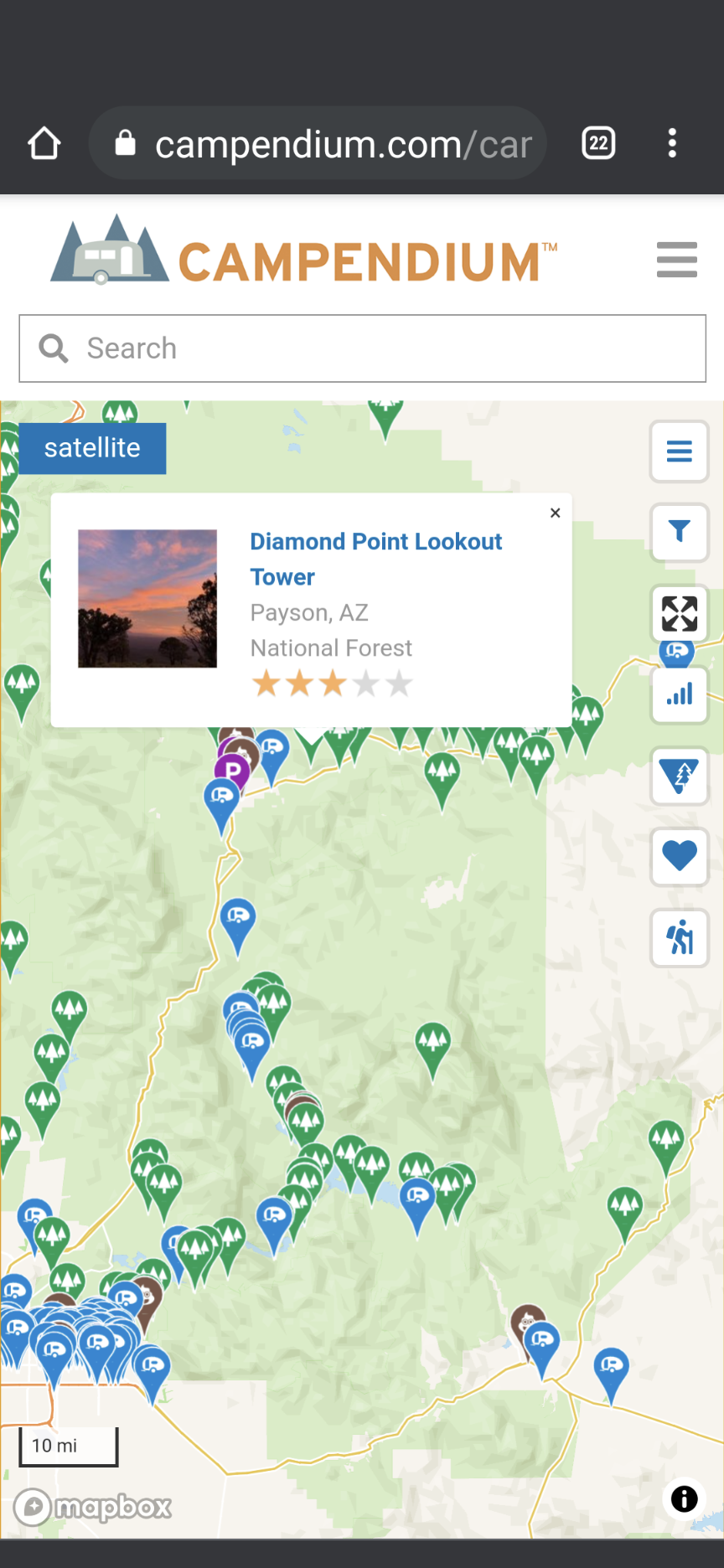
Campendium App (Available at the App Store, Google Play Store, & Website)
We’ve heard a lot of good things about this popular camping locator app. Besides helping you find RV parks and campgrounds across the US, it has a super-intuitive user interface making it easy for even the first-timer to find what they’re looking for. It allows you to search for sites via large categories such as RV parks, National Parks, Free Camping, and Dumpsite locations, right from the home page. It also allows you to apply dozens of features in their filter to narrow down the selections. With an active blog and social media presence, it’s easy to get connected to the Campendium community. It’s also fully integrated with online maps, making it super quick and easy to find and get to your campsite. The downside is the in-app advertising, but you can upgrade to the ad-free app, which also unlocks some bonus features.
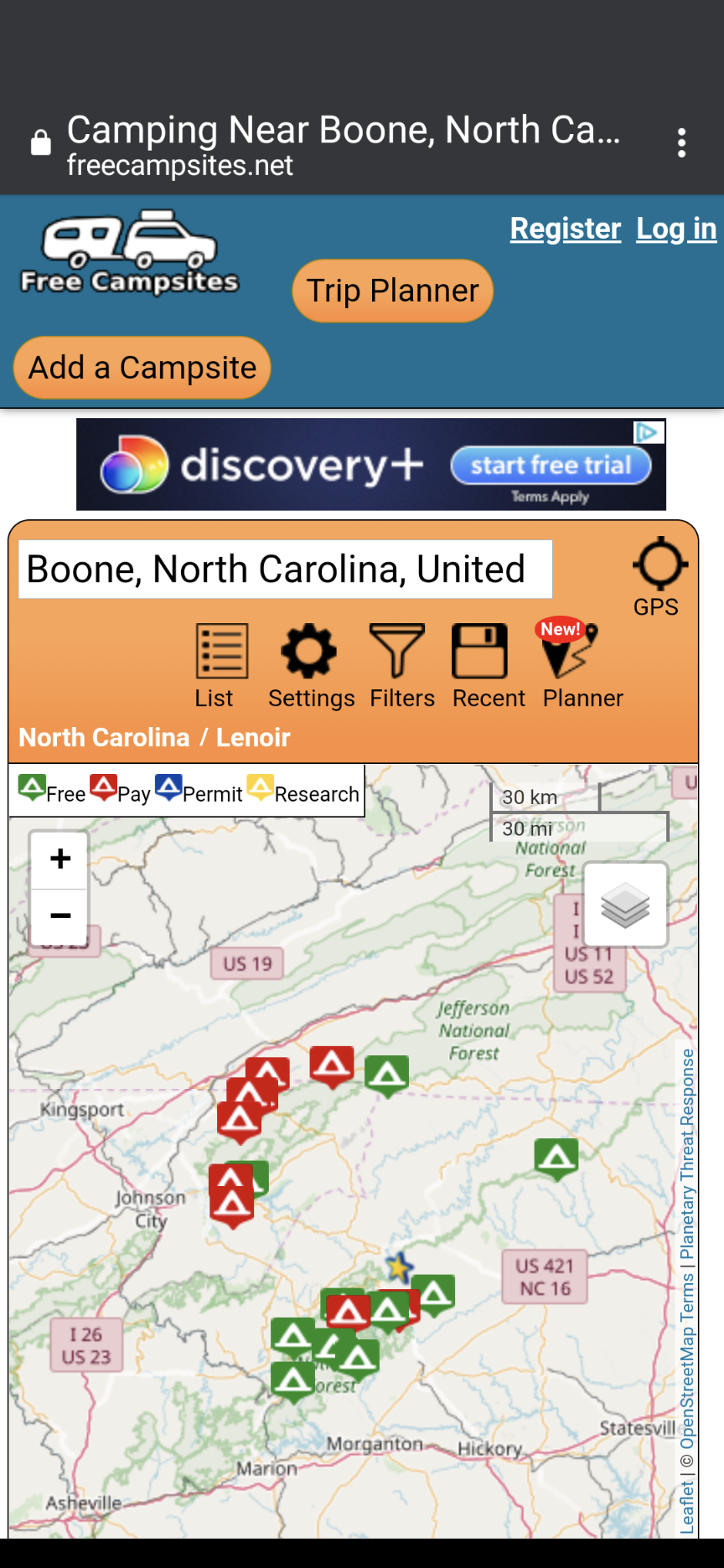
Free Campsites App (Available at the Google Play Store & Website)
This app has a bit of a learning curve, but once you get the hang of it, it’ll help you find a significant number of free places to spend the night or even a few days. It’s been around for a while and is probably in need of an update, but it is loaded with user-reviewed free spots (as well as a few fee-based areas and/or those that require a permit). The downside is that the GPS function is a little wonky, and has a hard time pinpointing your exact location. This means you have to use your brain a bit to triangulate information between the app, Google maps (if you have a signal), or your good ol’ fashioned road atlas (if you are offline). We include this resource because of how much good information is available in the database. So, just be patient…it’s free after all!
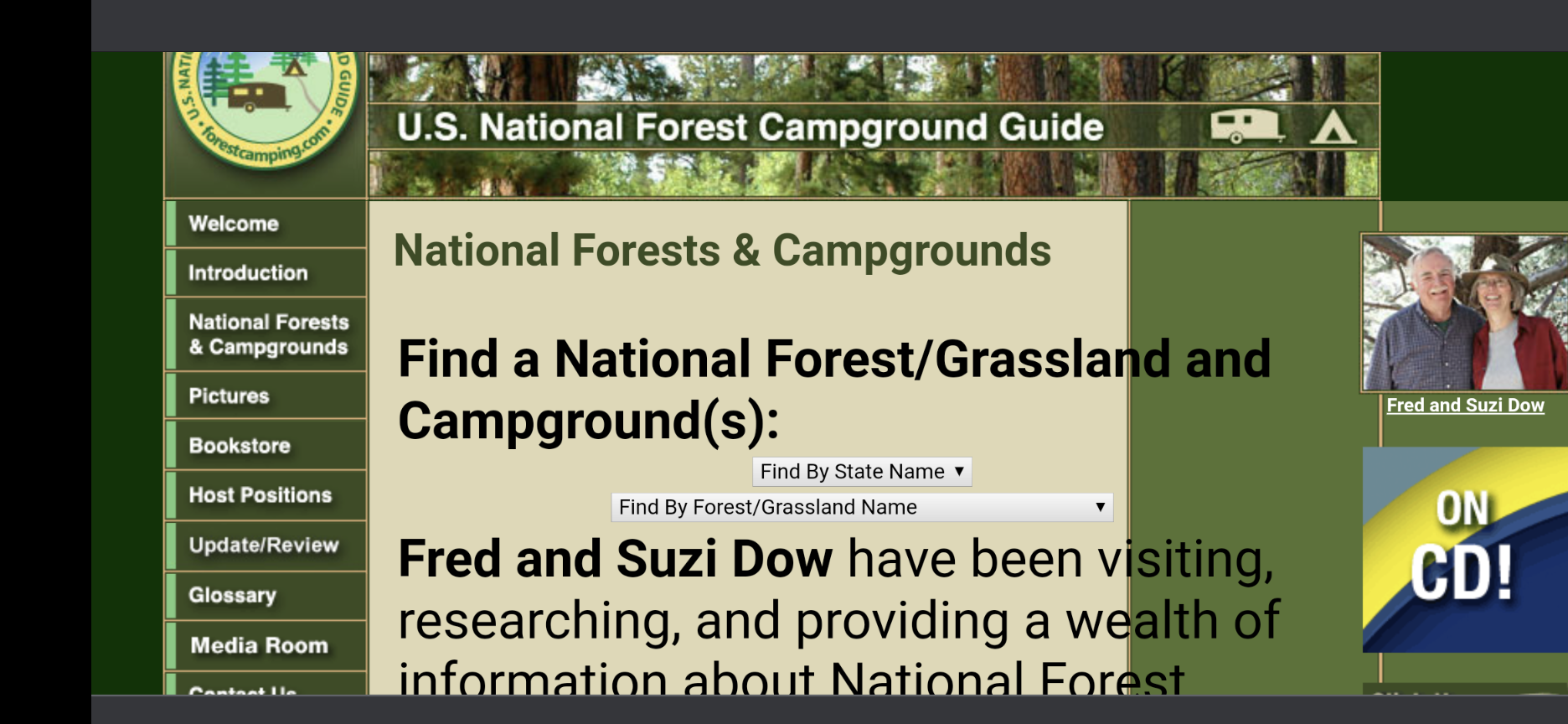
National Forest Service (Available on Website Only)
National Forest Service campgrounds are typically remote, quiet, and nicely maintained by both rangers and volunteers. While most aren’t free, they are often inexpensive and have extra amenities, such as potable water and pit toilets, and gorgeous views. Most do not offer hookups of any kind, so are perfect for those who are set up to boondock. The website (developed by Fred and Suzi Dow who have been visiting, researching, and providing a wealth of information about National Forest campgrounds since 1994) offers more information about 157 national forest and grassland campgrounds than any other single website. You can search by state, or by a specific forest/grassland area. The only downside is that there is no integrated map function, so you have to triangulate the data with either an atlas or phone navigation app.
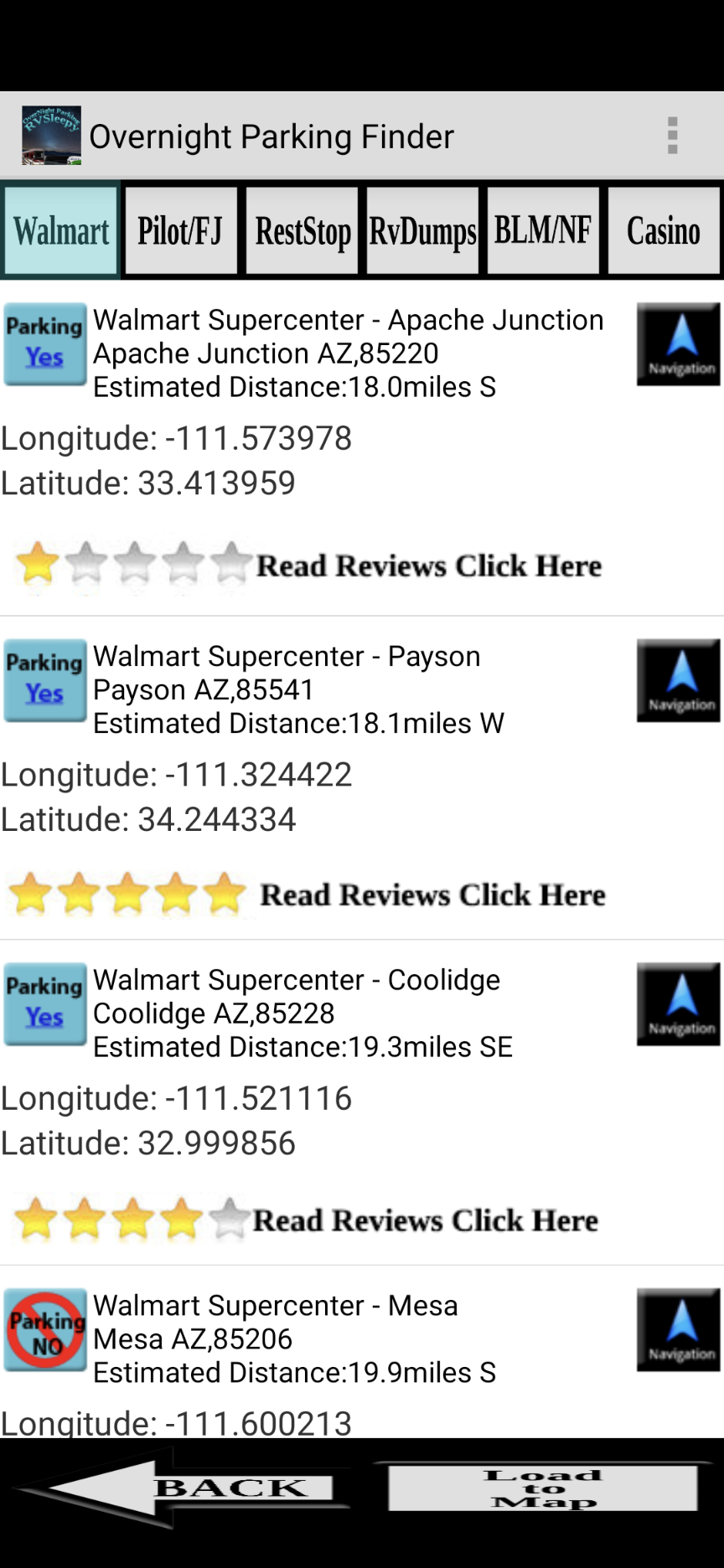
Overnight Parking Finder App (Available at Google Play Store)
This app comes in handy when you are seeking a free place to stop just for a night or two. The search function focuses on truck stops, rest stops, BLM/NFS land, casinos, Walmarts, and a few other common overnight parking areas. You can search by state or by “near me,” both of which allow you to navigate via GPS if you have a cell signal. There are a few user reviews of popular spots, but most are not yet reviewed as it appears to be a newer app. The downside is that while it is free, it is filled with somewhat annoying ads.
RVParky App (Available at the App Store, Google Play Store, & Website)
The beauty of this app is that it was designed by RVer’s for RVer’s. With so many filters you can sort for the perfect type of camping you want to find. While this app includes primitive camping and dispersed boondocking areas, its primary resource is a comprehensive list of RV parks & resorts, and overnight parking locations including free and low-cost. Without any in-app ads or purchases, this app just gives you the skinny on where you might want to go.
The Vanlife App (Available at the App Store & Google Play Store)
This app was co-founded by two women and bills itself as the one-stop-shop for vanlifers — designed by and for those who live on the road. Find everything from campsites to showers to others living on the road. They offer how-to articles, webinars, and more. Vanlife is an ethic, so it doesn’t matter if you live full-time in an RV, motorhome, skoolie, van, pick-up truck, or Festiva. You are invited to be a part of this community. As a Public Benefit Corporation, a portion of in-app sales is donated to non-profit sustainability initiatives. They actively promote Leave No Trace principles and do advocacy work around sustainable housing and mobile living.
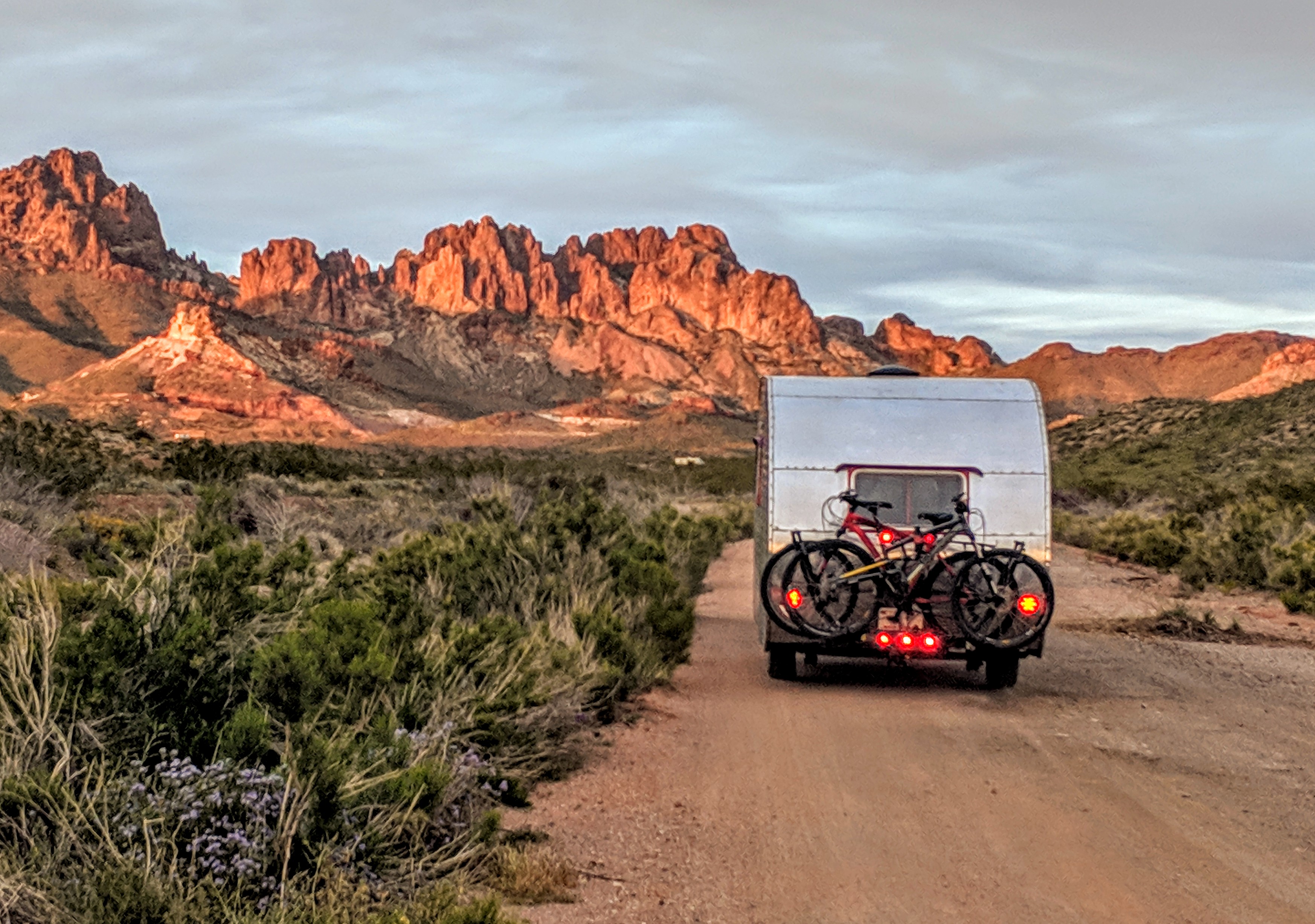
Annual Fee-Based Apps, With Additional Benefits
Some apps have taken it up a notch and provide travelers more than just the average user-reviewed info which ranges from very helpful to simply annoying – you be the judge. These fee-based resources range in price from $35 to $79 per year, all with different benefits beyond just a place to camp.
AllStays PRO App – $35 annual fee (Available on App Store or via Website)
From tent and RV camping to numerous overnight parking options, to places where you can dump your RV tanks, fill up on propane, get your rig worked on, and more, AllStays PRO has put all of this info into one easy to use app with slick graphics.
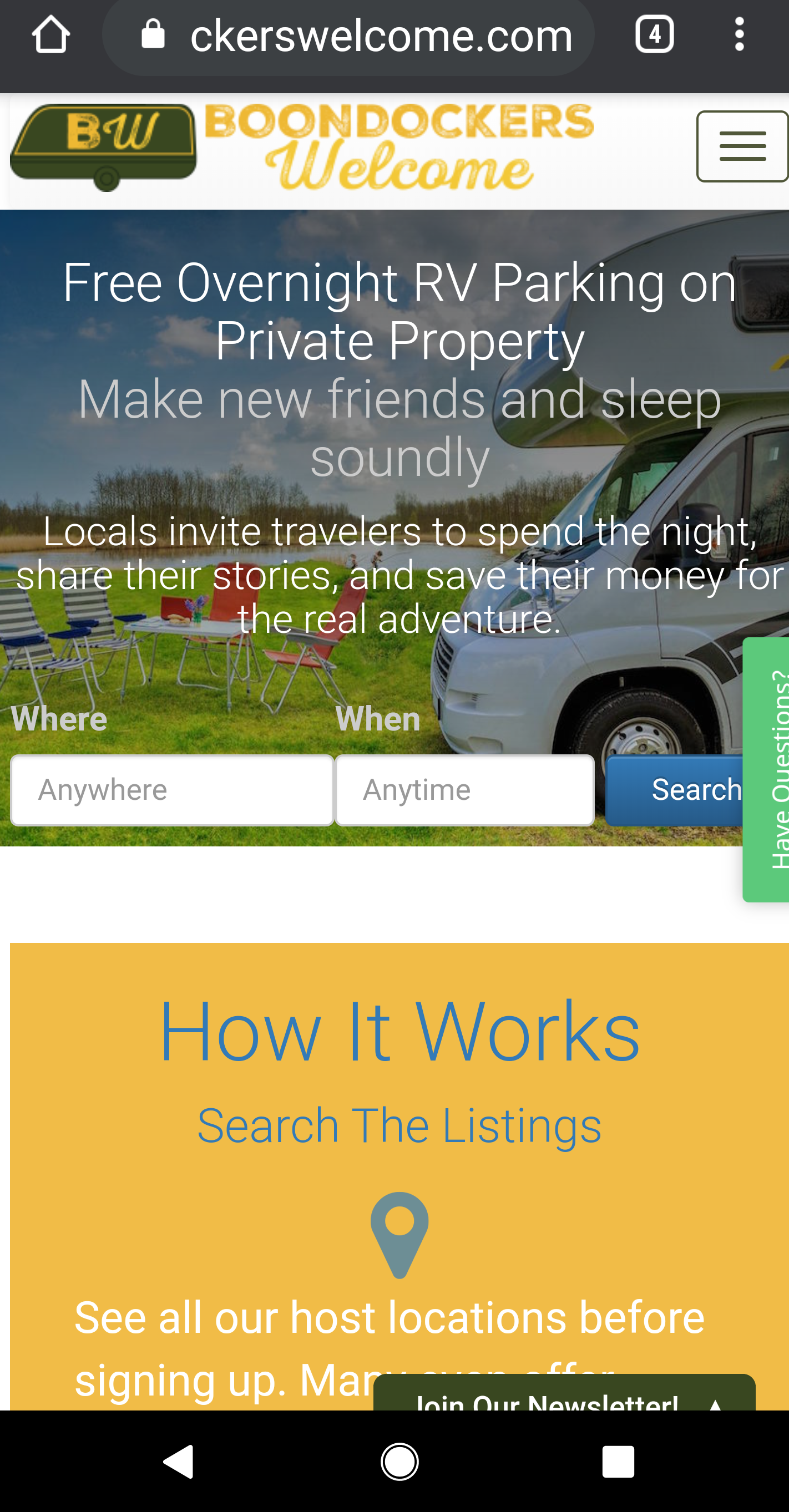
Boondockers Welcome App – $50 annual fee (Available on App Store, Google Play Store, & Website)
This service is a nationwide collection of hosts who love to travel and meet new people. They offer their own driveway, land, farm, etc. to other self-contained RVers. While the title refers to camping off-grid, many hosts do offer hook-ups (a great place to recharge some batteries), water, local knowledge, and new friendships. Just call ahead to see if they have a space for you, and you are all set. Most are following strict COVID regulations these days as well.
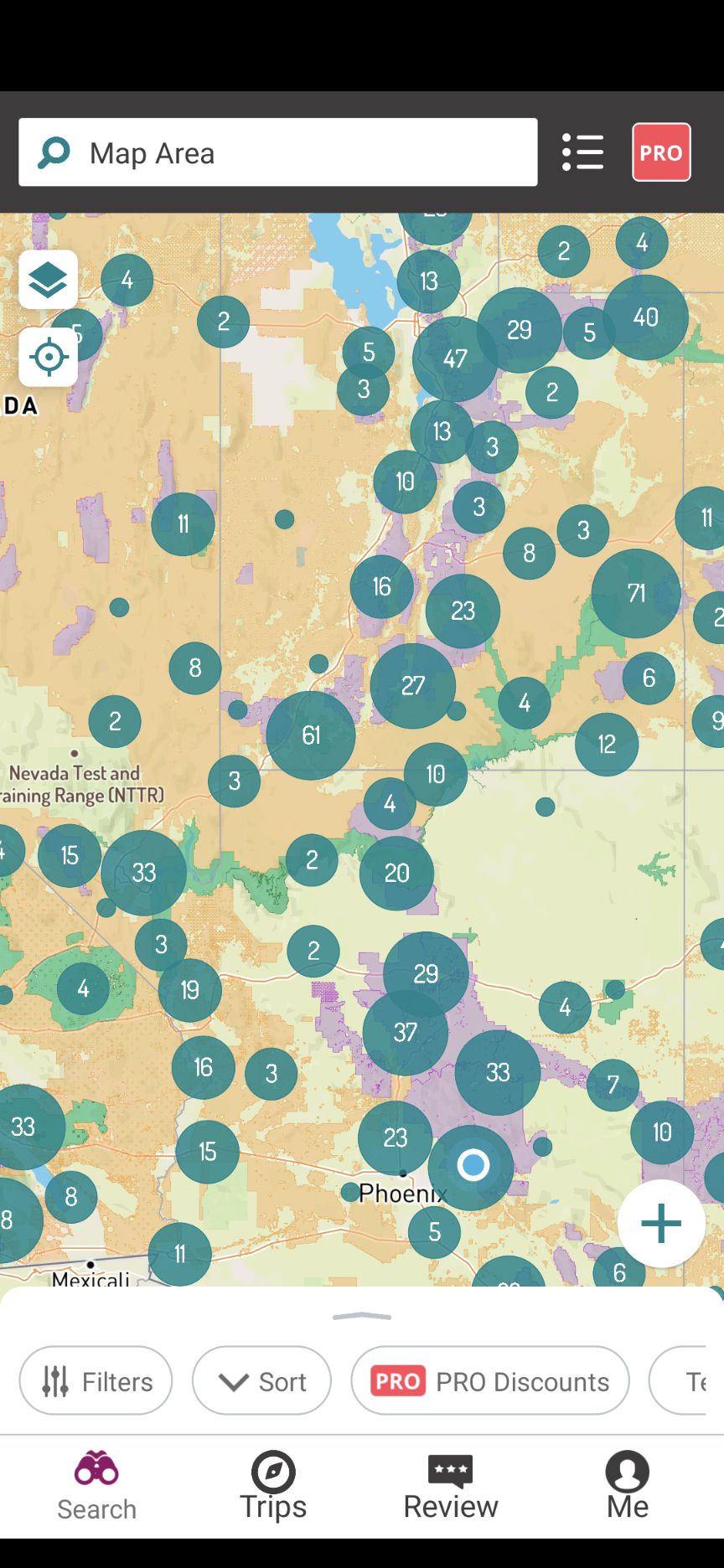
The Dyrt PRO App – $36 annual fee (Available on App Store, Google Play Store, & Website)
In addition to all the cool features listed above for the free version of this app, the PRO version has a Public Land Locator, Trip Planner, Campground Discounts, Gear Discounts, and Offline Maps which are handy where you are nowhere near a cell signal and trying to find campgrounds. It’s an all-in-one app for tent campers, vanlifers, and RVers alike. The fee is small enough that if you use a few of these discount features the first couple of weeks, it quickly pays for itself. Try a FREE 90-day trial and get $4 off the annual fee on us!
Harvest Hosts App – $79 annual fee (Available on App Store, Google Play Store, & Website)
This resource is a network of wineries, breweries, distilleries, farms, and attractions that invite self-contained RVers and Vans to stay in over 1500 sites across the US. The membership fee provides members unlimited access to stay overnight at any one of the hosts’ locations. While not required, they encourage users to purchase products made by the host, which is a great way to support small businesses and get connected to interesting local products. The hosts do not offer hook-ups, so being self-contained is key. Stays are usually limited to one or possibly two nights.

A Whole New Game
As we said before, when we started this lifestyle in 2012, the amount of information available to us was laughable, but we still managed to find great locations to spend our time. If finding a place to park and camp for a few days is one of the worries holding you back from heading out on the road for any length of time, we hope this resource will help you. Try a few of them out for yourself and give us your feedback on what resources you find the most helpful. See you on the road!
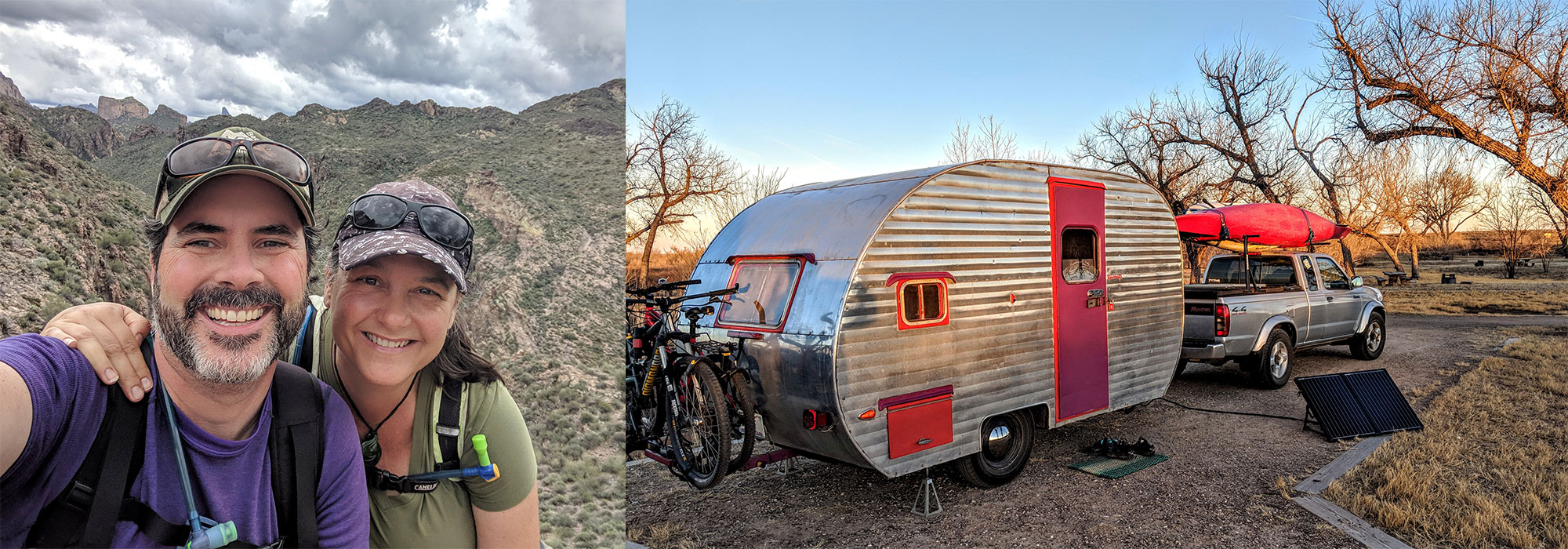
Shari Galiardi & David Hutchison have turned their higher education backgrounds, desire for life-long learning, and thirst for adventure travel into writing, photography, video production, and public speaking tours from coast to coast. Known to their friends as simply Shari & Hutch, you can learn more about their full-time, solar-powered adventures on their website at freedominacan.com. Or, follow them on Facebook, Instagram, and YouTube as “Freedom in a Can.”






